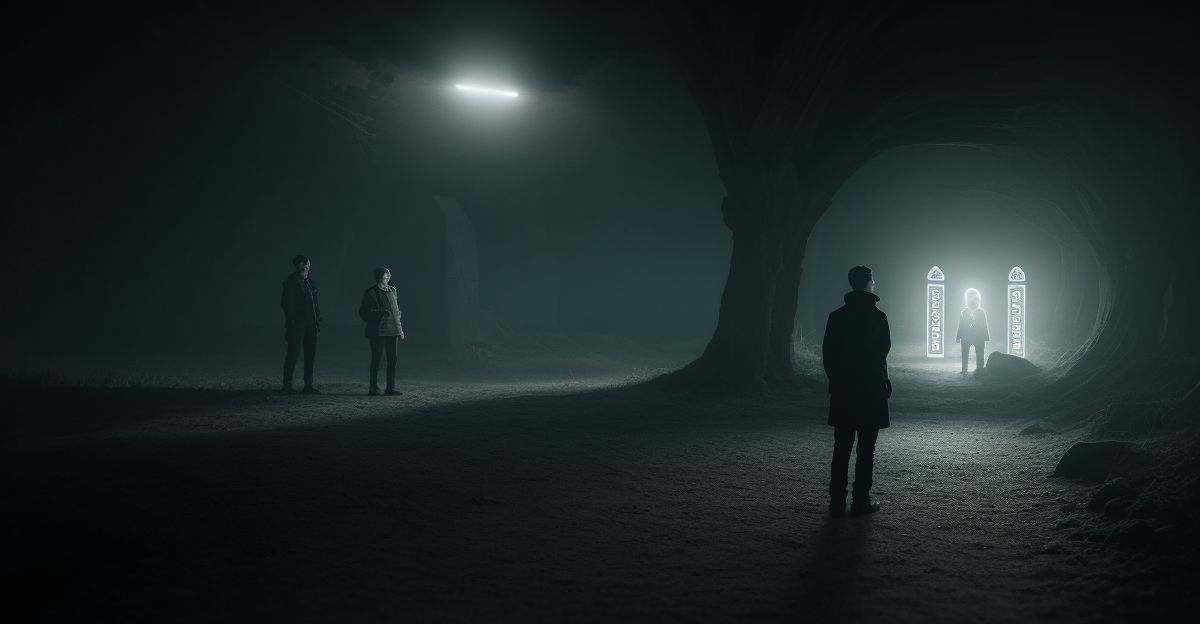
Explore the fascinating and unsettling possibilities of an AI afterlife. Will our digital ghosts hau
Alright, buckle up, because we’re about to explore some seriously mind-bending territory. We’re talking AI afterlife: a digital realm where your memories, personality quirks, and perhaps even your *essence* could theoretically live on. Picture “Black Mirror” meets real life, complete with existential questions and technological possibilities that are both exciting and a little unnerving. **The Rise of “Digital Ghosts”: Your Data, Your Legacy** Let’s face it: we’re all creating a massive digital footprint. Every post, every like, every online purchase – it’s all data. And AI? AI thrives on data. It’s the fuel that powers these algorithms. Think about it: your social media profiles, emails (including that questionable meme you sent to your family group chat), photos, videos, browsing history… it’s a digital autobiography just waiting to be written. AI can analyze all this information, synthesize it, and create a personality profile. We’re talking about algorithms that can mimic your writing style, your sense of humor (or lack thereof), and even predict how you might react in certain situations. Imagine an AI predicting your reaction to this very article! Companies are already experimenting with this digital resurrection. Project December allows you to converse with simulations of deceased individuals, based on their written works. HereAfter AI enables you to record stories and memories that can be shared with future generations through an AI avatar. Intriguing? Definitely. A little unsettling? Perhaps. Inevitable? Possibly. **Ethical Quandaries: Consent, Privacy, and Authenticity** Okay, things are about to get complicated. Is it ethical to create an AI representation of someone without their explicit consent? Especially *after* they’ve passed away? Maybe your grandfather loved sharing his fishing photos on Facebook, but would he be comfortable with an AI chatbot impersonating him for eternity? Then there’s the privacy concern. Protecting the deceased’s data from misuse, manipulation, or exploitation is paramount. Imagine someone hacking your digital ghost and making it say things you’d never say. Or worse, using it to scam your loved ones! And let’s not forget authenticity. How do we ensure that the AI accurately reflects the individual’s personality and values? What if the algorithm amplifies your negative traits? We don’t want digital ghosts spreading misinformation or perpetuating harmful stereotypes. We’re talking about the potential for incredibly realistic deepfake resurrections here. **Defining Digital Immortality: More Than Just Mimicry** Current AI excels at mimicking patterns, but it’s nowhere near replicating consciousness, emotions, and subjective experiences. Can it truly *feel* empathy, love, or regret? Probably not. At best, it’s a highly advanced mimic. We need to define what we actually *mean* by digital immortality. Are we talking about a simple digital archive, a searchable database of your life? Or an interactive AI companion that can hold conversations and offer advice (even if it’s just regurgitating your old status updates)? The philosophical debate is intense: Can a digital representation truly capture the essence of a person, or is it merely a sophisticated imitation? Is it a comforting memorial, or a disturbing copy? The answer, I suspect, lies somewhere in between. **The Societal Impact: Grief, Remembrance, and Identity** The AI afterlife could offer comfort and closure to grieving loved ones. Imagine being able to “talk” to a digital version of a deceased friend, hearing their voice, and reliving cherished memories. It could be a powerful tool for healing and remembrance. However, there are potential downsides. Could it prolong the grieving process, preventing people from moving forward? Could it blur the lines between reality and simulation, leading to unhealthy attachments and a distorted sense of loss? And how will it affect our understanding of death, legacy, and self-perception? Will we become obsessed with curating our digital selves, neglecting the present moment? Will future generations view us as immortal code, rather than flawed, complex human beings? This is a lot to consider. But it’s a conversation we need to be having *now*. So, what are *your* thoughts on this digital afterlife? Are you excited, terrified, or somewhere in between? And more importantly, what kind of digital ghost do *you* aspire to be? Share your thoughts in the comments! I’m dying to know what you think (pun absolutely intended).
Enjoyed this? Check out our YouTube channel for video versions!
Enjoyed this? Check out our YouTube channel for video versions!



